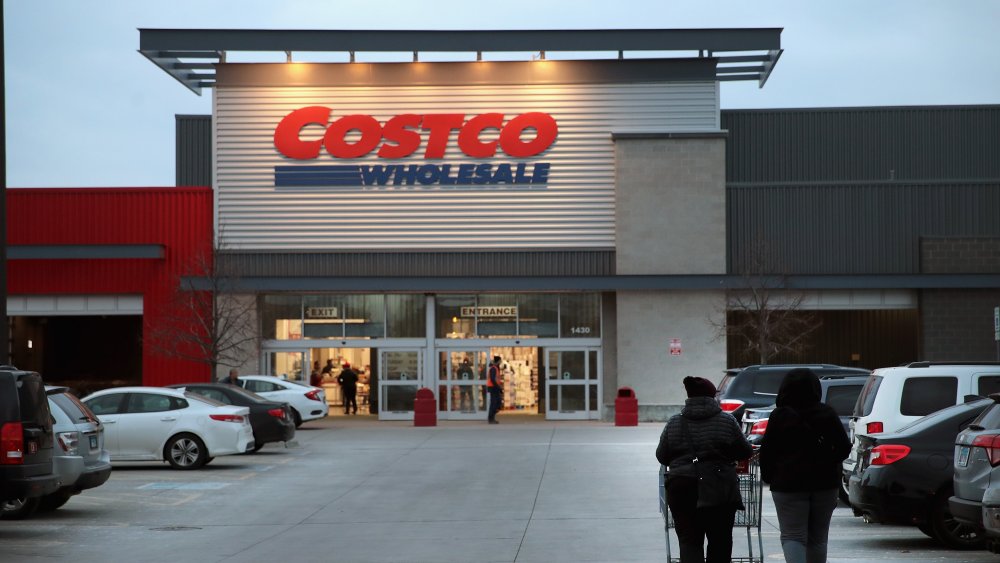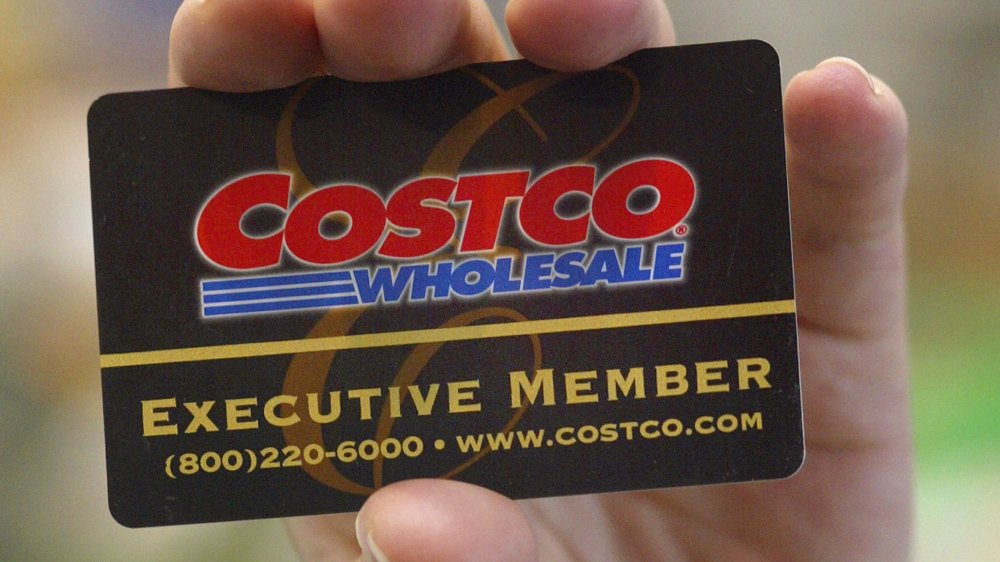Costco's Grocery Sales Don't Make Them As Much Money As You Think
Walk into any Costco store in the United States on a weekend and you'll undoubtedly see cart after cart loaded up with groceries. According to Market Research, 34 percent of adults do at least some of their grocery shopping at wholesale stores such as Costco. After all, it only makes sense if you're going to pay for Costco's annual membership to load up on the low prices they have for giant bottles of Heinz ketchup, right?
Costco made a gross profit of over $18 billion in 2018 (via Macrotrends). While it might seem like Costco is making money hand over fist with their grocery sales, that's not necessarily the case.
The key is in Costco's membership sales
A recent Twitter thread by an investor broke down Costco's method for making a profit, and the secret isn't in their inventory. Costco certainly has some great bargains for shoppers, but for the company, it doesn't make most of its money at the grocery checkout. Say that you buy five jars of peanut butter on your shopping trip because you plan to eat PB&J sandwiches for the next three months. Well, you may have only paid $10 for all that peanut butter, but Costco only made $1 off of your purchase. Costco certainly isn't making its billions one dollar at a time (via Money).
The wholesale giant is actually making a significant portion of its billions in profit through its membership program, which currently has around 53 million members. Translation: cha-ching! A Gold Star membership with Costco costs $60 a year and a Gold Star Executive membership will set customers back $120. With each membership it sells, Costco is pulling in "pure profit," and 90 percent of people renew their membership each year (via The Motley Fool).
Because Costco buys so much inventory and moves it before they have to pay suppliers, they have "price authority." This buying power allows them to get the best bulk deals on goods from suppliers and in turn, those low prices entice more folks to sign up for their memberships. Not a bad business model, huh?

